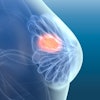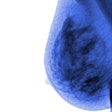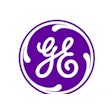Monday, November 26 | 3:30 p.m.-3:40 p.m. | SSE02-04 | Room E450B
The screening recall rates for individual radiologists are influenced by their annual reading volume and experience, researchers from Brigham and Women's Hospital in Boston have found.The study results suggest that radiology departments could implement specific interventions to help their clinicians improve, according to the group led by Dr. Catherine Giess.
"Efforts to reduce screening recall rate variability and false-positive recalls might include increasing annual screening interpretive volumes and review of uncertain screening findings for less experienced radiologists by more experienced breast imaging specialists," Giess and colleagues noted.
The study included 61,198 screening mammography examinations interpreted by 13 breast imaging specialists at an urban academic center and two outpatient imaging centers between October 2012 and May 2015. Giess' group calculated annual screening volumes, years of clinical experience, and the percentage of time spent doing breast imaging for each radiologist.
Of the total number of screening mammography exams, 5,678 (9.3%) were recalled. The following statistically significant characteristics were associated with higher odds of recall:
- Patient age younger than 50 years
- Presence of calcifications, masses, and higher density on prior mammograms
- Annual reading volume of fewer than 1,250 screening exams
- Less than 10 years of experience
Risk aversion, malpractice concerns, and cancer detection rates were not associated with higher recall rates, Giess and colleagues noted.
"Interventions targeting radiologist factors may reduce unwarranted variation in screening recall and improve patient's care experience," the researchers concluded.




















